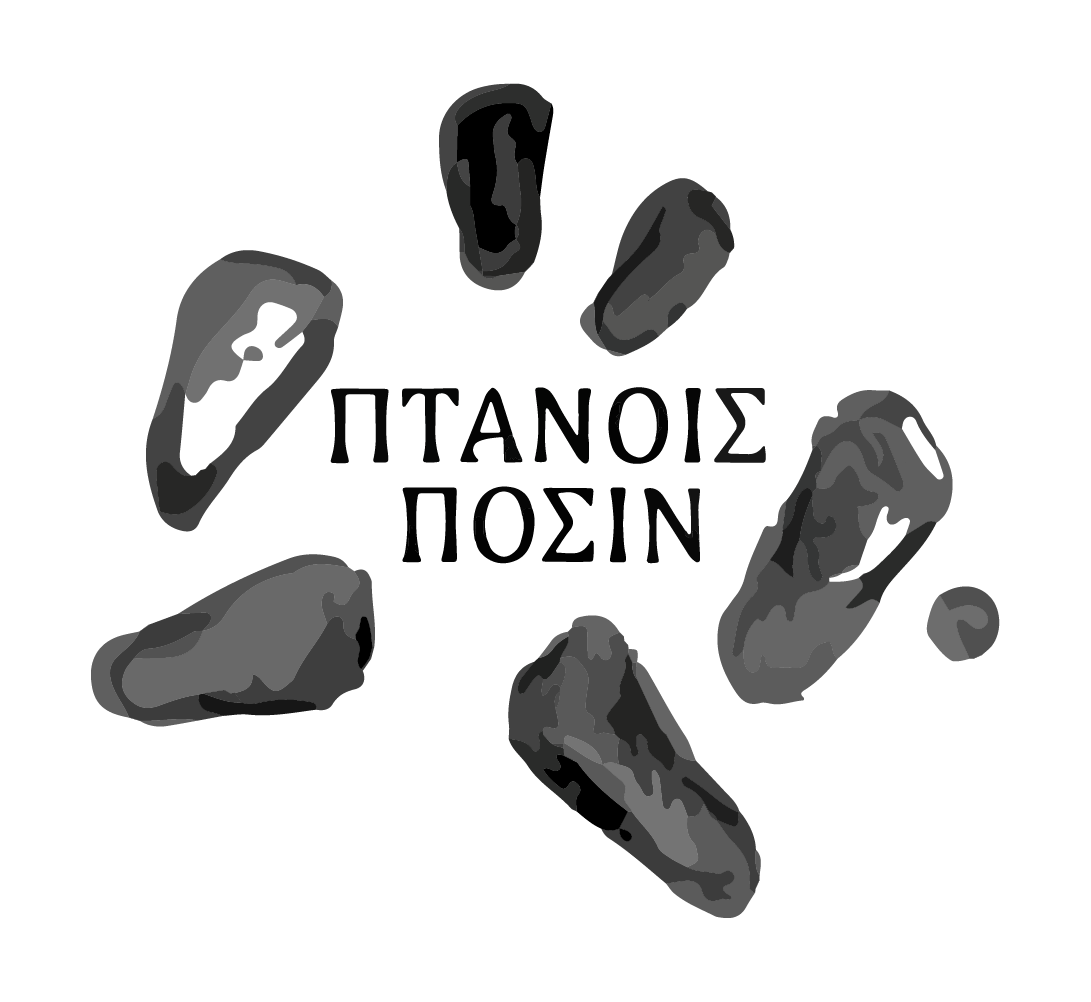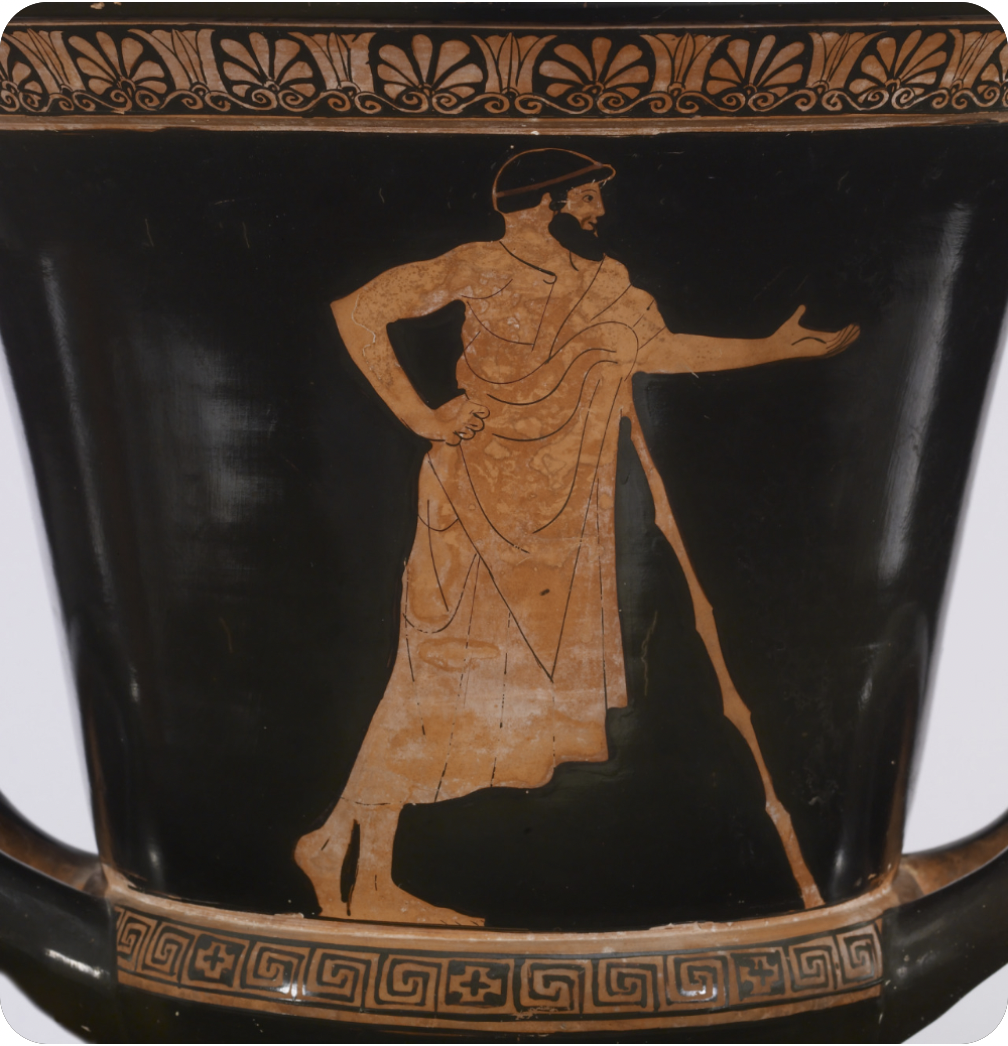Petrakos 1997, 211
– OROPOS- Amphikles of Delos, the son of Philoxenos: μουσικός, μελῶν ποιητής
Date:
ante 166 BC
Edition:
Δημήτριος Μνασίλλου εἶπεν· προβεβουλευμένον εἶναι αὑτῶι πρὸς τ[ὴν βουλὴν]
καὶ τὸν δῆμον· ἐπειδὴ Ἀμφικλῆς Φιλοξένου Δήλιος εὔνους ὢν διατελεῖ τεῖ τε πόλ[ει κοινεῖ]
καὶ τῶν πολιτῶν τοῖς ἀεὶ δεομένοις χρείας παρέχεται ἐν παντὶ καιρῶι καὶ λέ[γων καὶ]
πράττων τὰ συμφέροντα ἐπιδημήσας τε παρ’ ἡμῖν ἀκροάσεις καὶ πλείους πεπόηται, δε[δόχθαι]
5 τεῖ βουλεῖ καὶ τῶι δήμωι· Ἀμφικλῆν Φιλοξένου Δήλιον ἐπαινέσαι ἐπί τε τεῖ πρὸς τὴν πό[λιν εὐνοίαι]
καὶ ταῖς ἀκροάσεσιν καὶ ἐπὶ τεῖ ἀναστροφεῖ, εἶναι δ’ αὐτὸν πρόξενον καὶ εὐεργέτην τῆ̣[ς πόλεως]
Ὠρωπίων καὶ αὐτὸν καὶ ἐκγόνους καὶ εἶναι αὐτοῖς γῆς καὶ οἰκίας ἔγκτησιν καὶ ἰσοτέ[λειαν]
καὶ ἀσυλίαν καὶ πολέμου ὄντος καὶ εἰρήνης καὶ τἆλλα πάντα ὑπάρχειν αὐτοῖς καθά[περ τοῖς]
ἄλλοις προξένοις καὶ εὐεργέταις τῆς πόλεως γέγραπται.
Translations (en):
“Demetrios, the son of Mnasillos, who presented a probouleuma to the boule and the demos proposed: since Amphikles of Delos, the son of Philoxenos, continually shows goodwill publicly to the city and always provides services to those of the citizens needing it, by saying and doing on every occasion what is advantageous to them, and while staying with us he also gave many recitations; therefore it is resolved by the boule and the demos to praise Amphikles of Delos, the son of Philoxenos, for his goodwill and his recitations and his good conduct; he shall be proxenos and benefactor of the city of Oropos, and that both himself and his descendants; shall have the right to own land and buildings, and taxation the same as citizens, and inviolability both in war and in peacetime, and they shall have all the other advantages that are prescribed for other proxenoi and benefactors of the city.
[translation from http://www.attalus.org/docs/sig2/s662.html, slightly modified]
Translations (it):
“Demetrios figlio di Mnasillos propose, avendo egli stesso presentato un probouleuma al consiglio e all’assemblea: poiché Amphikles di Delo figlio di Philoxenos si comporta ripetutamente in modo benevolo verso la città nel suo complesso e procura sempre vantaggi a coloro tra i cittadini che ne hanno bisogno dicendo e facendo ciò che è necessario in ogni circostanza, e avendo soggiornato presso di noi, tenne delle pubbliche esecuzioni anche in gran numero, è sembrato bene al consiglio e all’assemblea: di lodare Amphikles di Delo figlio di Philoxenos per la benevolenza verso la nostra città, per le pubbliche esecuzioni e per il suo comportamento, che sia prosseno ed evergete della città di Oropos sia lui sia i suoi discendenti, che essi abbiano il diritto di possesso di terra e casa, il diritto di pagare le tasse alla pari dei cittadini, l’immunità per i propri beni sia in guerra che in pace e tutti gli altri vantaggi che appartengono agli altri prosseni ed evergeti della città. Si scriva.”
Commentary (en):
Two decrees (see also Delos, ID 1497), respectively from Oropos and Delos honoring Amphikles son of Philoxenos, allow us to take a peek at the artistic itinerary of one of the most representative figures among the poeti vaganti of the Hellenistic Period. The inscriptions first of all pose the problem of the provenance of this artist, said to be a Delian in Oropos and a citizen of Renea in Delos. Aside from the numerous ἀκροάσεις delivered in both places, Amphikles is charged on the sacred island with composing a prosodion for the gods and the Athenians. He will also teach the sons of citizens to perform the new composition. The Delian decree particularly gives us the chance to speculate on the lexicon adopted and the context of performance of the piece. Moreover, it describes a multi-talented artist putting his poetic and his musical expertise and his professionalism to good use in public life. At the beginning of the Second Athenian Domination on the island, the artistic activity of Amphikles can be framed in the context of the propaganda that seems to have been realized through the choice of the occasion for the performance and the desire to shape a collective memory with the help of the poetic tradition.
Commentary (it):
ue decreti, rispettivamente provenienti da Oropo e da Delo in onore di Amphikles figlio di Philoxenos, consentono di ricostruire un segmento dell’iter artistico di uno dei più rappresentativi tra i poeti vaganti di età ellenistica. I testi pongono innanzitutto il problema della provenienza di questo artista, segnalato come delio presso Oropo e come cittadino di Renea presso Delo. Oltre alle numerose ἀκροάσεις fornite in entrambi i luoghi, sull’isola sacra Amphikles viene incaricato di comporre un prosodio in onore degli dei e degli Ateniesi, per l’esecuzione del quale vengono istruiti i figli dei cittadini. È il decreto delio, in particolare, a fornire numerosi spunti di riflessione lessicali e contestuali e a raccontare una figura artistica che mette al servizio della sfera pubblica il suo expertise poetico-musicale e i suoi talenti molteplici di esecutore e compositore. Al principio della seconda dominazione ateniese, l’attività artistica di Amphikles presso Delo si inserisce in un intento propagandistico che sembra essere realizzato attraverso la scelta ragionata del contesto di esecuzione e la volontà di formazione di una memoria collettiva attraverso la tradizione poetica.
Bibliography:
Si veda Cinalli 2014


